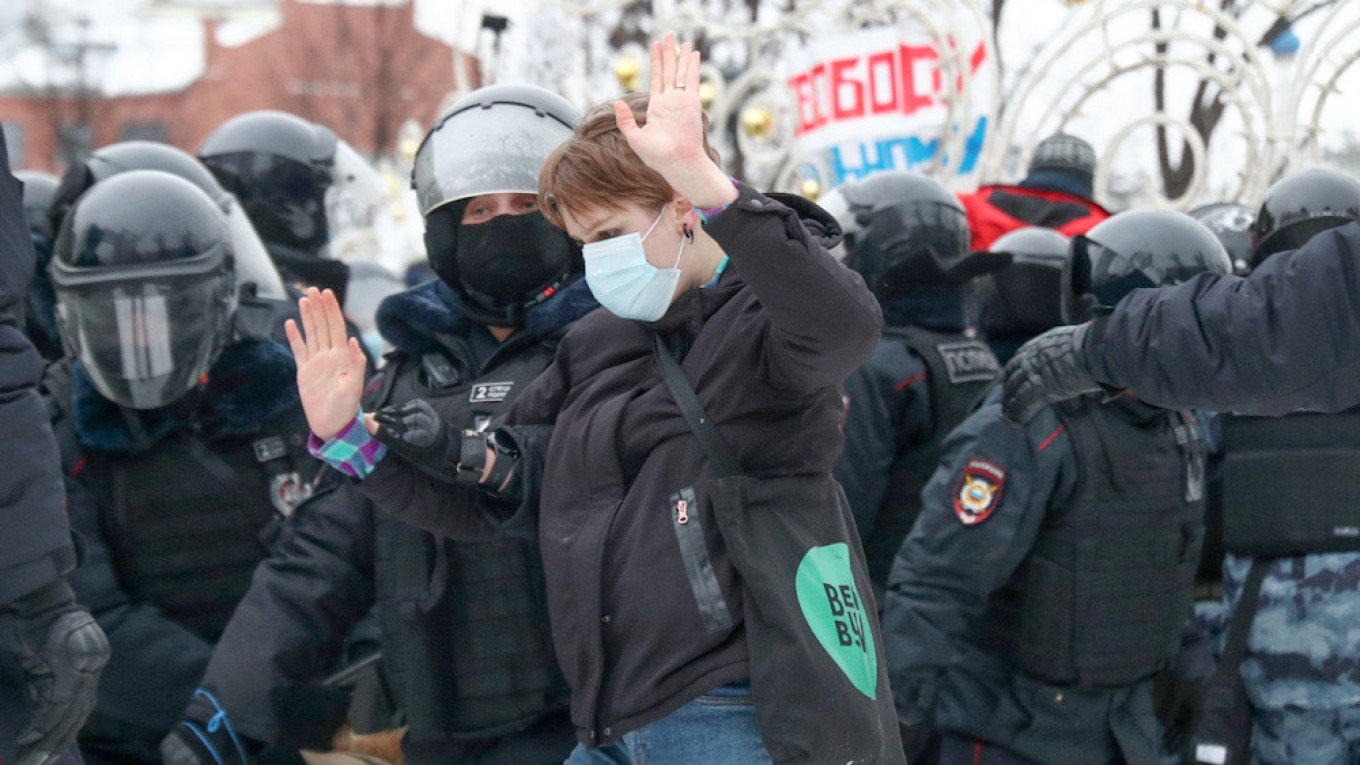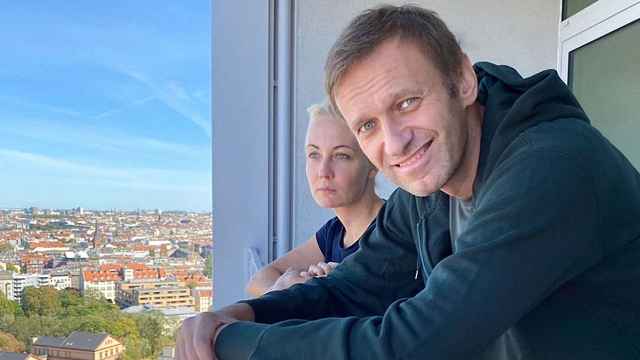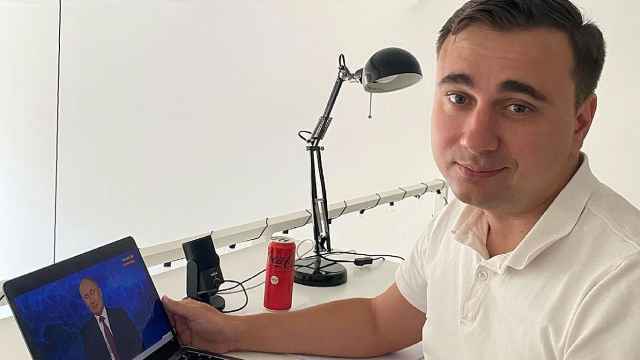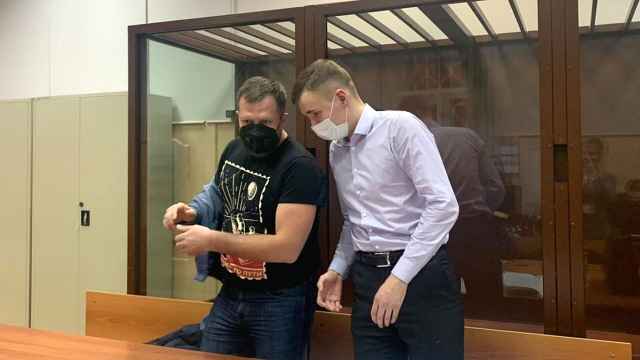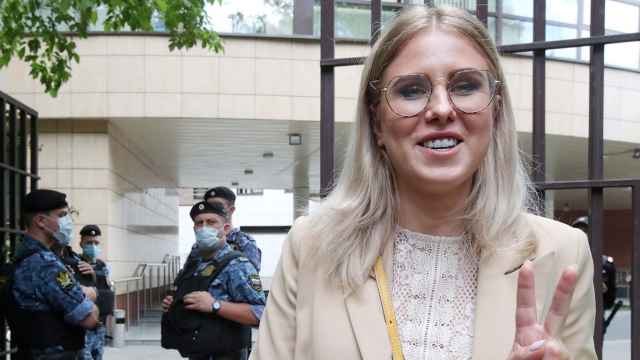Russian police have warned people against attending planned mass protests in support of Alexei Navalny amid increasing concern for the hunger-striking Kremlin critic’s health.
Navalny’s allies have called on supporters nationwide to take to the streets Wednesday evening in a bid to save his life. His doctors warned over the weekend that he could die at “any minute” nearly three weeks into his hunger strike, which he launched to demand outside medical treatment for a host of ailments.
“Units of the Russian Interior Ministry and other law enforcement agencies will not allow for any destabilization of the situation and will take all necessary measures to maintain law and order in the regions of the country,” the Interior Ministry said Monday
The ministry urged Russians not to jeopardize their “health and safety” by attending the protests, which would violate anti-coronavirus bans on mass gatherings. It also called on Russians to prevent friends and relatives from attending, “especially minors.”
Wednesday’s protests, which are set to take place hours after President Vladimir Putin’s annual state-of-the-nation speech, are expected in at least 80 cities.
They come days after prosecutors asked a court to label Navalny's Anti-Corruption Foundation (FBK) and his regional network "extremist" organizations. The move would outlaw the groups and could result in jail time for their members or even supporters.
Tens of thousands of Russians took part in nationwide protests in January and February after Navalny was detained upon returning from Germany, where he recovered from a near-fatal poisoning he pins on Putin, a charge the Kremlin denies. Police detained over 10,000 people during the rallies, with widespread reports of brutality against peaceful protesters.
In the wake of those protests, Russia opened criminal cases against top Navalny aide Leonid Volkov and the editors of a student-run news outlet on charges of “inciting minors to illegally protest.” Authorities also took aim at social networks like Twitter and TikTok for failing to take down calls to protest, saying such content illegally targets children.
A Message from The Moscow Times:
Dear readers,
We are facing unprecedented challenges. Russia's Prosecutor General's Office has designated The Moscow Times as an "undesirable" organization, criminalizing our work and putting our staff at risk of prosecution. This follows our earlier unjust labeling as a "foreign agent."
These actions are direct attempts to silence independent journalism in Russia. The authorities claim our work "discredits the decisions of the Russian leadership." We see things differently: we strive to provide accurate, unbiased reporting on Russia.
We, the journalists of The Moscow Times, refuse to be silenced. But to continue our work, we need your help.
Your support, no matter how small, makes a world of difference. If you can, please support us monthly starting from just $2. It's quick to set up, and every contribution makes a significant impact.
By supporting The Moscow Times, you're defending open, independent journalism in the face of repression. Thank you for standing with us.
Remind me later.


